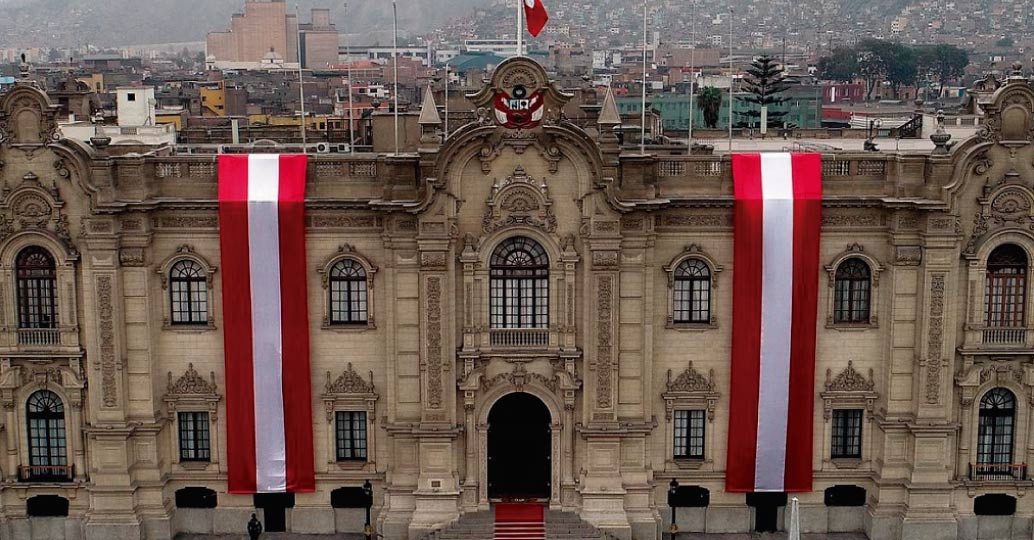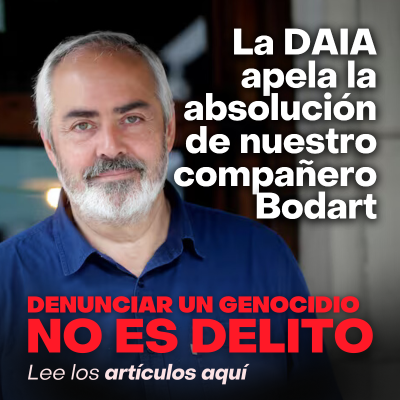Desde Perú, Sofía Martínez
El 28 de julio del 2021 juramentó como Presidente de la República; el maestro de escuela rural
y líder sindical, Pedro Castillo Terrones. En un ambiente enrarecido por el cuestionamiento a la
transparencia del proceso electoral que la derecha venía realizando, llamando incluso a
desconocer los resultados oficiales. Juramenta con un gabinete incompleto y cuestionado; luego
en Pampa de la Quinua (Ayacucho), presenta a Guido Bellido como primer ministro. Esto último
para fortalecer la imagen de Perú Libre, el partido que lo invitó como candidato presidencial.
Al principio, la derecha sostuvo una campaña de miedo en complicidad con los medios de
comunicación. Un miedo a que se impusiera un régimen autoritario bajo la sombra de Vladimir
Cerrón, el Secretario General de Perú Libre y a que el Perú se convirtiera en otro Venezuela. Pero
nada más errado; el gobierno de Castillo resulta ser un gobierno débil cimentado en la
improvisación, la falta de profesionalismo, la inexperiencia en gestión pública y una total
ausencia de compromiso para hacer viable sus promesas de campaña.
La derecha, sin embargo, ha tenido muy en claro la estrategia de desestabilización que le viene
funcionando desde el gobierno de Pedro Pablo Kuczynski (2016). La vacancia presidencial es un
argumento de interpretación legal que viene haciendo el Congreso peruano, estrategia diseñada
desde las entrañas del fujimorismo. Para Keiko Fujimori está viene a ser la tercera derrota
electoral que se niega a asumir; pero han sabido ganar espacios en el legislativo, lo cual convierte
al fujimorismo en la principal fuerza política con mayoría parlamentaria. La siguiente “víctima”
de la vacancia fue Martín Vizcarra (sucesor de PPK) y luego, durante el gobierno de transición,
también utilizaron la vacancia como mecanismo de amedrentamiento al presidente Sagasti.
Desterrado el argumento del fraude electoral, así como el de la posible dictadura de Castillo; la
derecha continua con sus ataques sostenidos en el poder y control que tienen sobre los medios
de comunicación. Los insultos, el terruqueo y la desinformación contra el gobierno continúan
como pan de cada día. No hay mecanismo de regulación posible y en más de una oportunidad
varios funcionarios públicos del gobierno de Castillo; entre ellas la Ministra de la Mujer, Anahí
Durand y la Ministra de Cultura, Gisela Ortiz, se han visto obligadas a presentar denuncias
penales por difamación.
Otro fenómeno que ha surgido tras la coyuntura electoral es la aparición de grupos fascistas de
extrema derecha (“La Resistencia”) que convocan al sector más conservador y retrógrado de la
sociedad peruana. Pasaron de los ataques verbales a la agresión física; incluso con reglajes,
interceptación telefónica y violación de la privacidad de personajes como el Fiscal José Domingo
Pérez quien investiga directamente a Keiko Fujimori.
No hubo tregua, ni la llamada “luna de miel”, no hubo respeto ni acuerdo posible con la derecha;
la inestabilidad política es un hecho cuestionable que causa obstrucciones con terribles
consecuencias, por ejemplo, la adquisición de vacunas, la atención a problemas sociales
urgentes y la atención en su conjunto a la crisis generada por la pandemia.
¿Cuál ha sido la respuesta del gobierno?
Pedro Castillo no es un presidente que sepa comunicar con asertividad, sus pocas apariciones
mediante los escuetos mensajes a la nación dejan mucho que desear. Tiene entre sus aliados al
sector progresista liderado por Verónika Mendoza. Juntos por el Perú asumió un cogobierno con
Castillo, puso a disposición su bancada congresal de 5 curules y también supo proveer algunos
ministros claves como por ejemplo Pedro Francke en el Ministerio de Economía.
Tras el desastre que significó la presencia de Guido Bellido; el progresismo supo lanzar un
salvavidas a Castillo en la persona de la ex congresista Mirtha Vásquez (Frente Amplio), quien se
ha encargado de dar una imagen moderada al gobierno asumiendo la Presidencia del Consejo
de Ministros.
La Cuestión de Confianza es un mecanismo constitucional que plantea el Poder Ejecutivo de
manera obligatoria cuando solicita la investidura del Presidente del Consejo de Ministros y su
Gabinete ante el Congreso de la República; durante lo que va del 2021 el Perú ha tenido que
pasar por dos procesos de cuestión de confianza y varias interpelaciones a los ministros de
gobierno, la última costó la salida del Ministro de Educación, Carlos Gallardo.
Lejos de movilizar al pueblo que lo llevó a la victoria electoral, la estrategia del gobierno (Pedro
Castillo y aliados) ha sido crear aparatos para defender la democracia y la gobernabilidad. Tanto
con Guido Bellido como con Mirtha Vásquez, la respuesta ha sido seguir dando concesiones a la
derecha para calmar su sed de poder. Por ejemplo, la presencia Óscar Maúrtua en el Ministerio
de Relaciones Exteriores. Los aparatos no logran resolver los problemas ya que no responden a
organizaciones de bases que representen una verdadera presión social. Más bien se reducen a
actos simbólicos que inclusive no logran la efectividad que el gobierno necesita.
¿Cómo está Perú Libre?
Perú Libre llega el Congreso con 37 escaños; de estos, 16 provienen del sector ligado a Vladimir
Cerrón y 19 al sector conocido como “magisterio”. Sin embargo, tras el ingreso de Mirtha
Vásquez en el premierato y la consolidación de la alianza con el progresismo en el cogobierno,
Cerrón le quitó los votos congresales que el gobierno necesitaba para alcanzar la cuestión de
confianza. Las acusaciones del cerronismo han sido de todo calibre, desde la denuncia a Castillo
por alejarse del Programa e Ideario del partido hasta la supuesta dominación de “los caviares”;
término que usan para referirse a los progresistas.
Como consecuencia, han terminado divididos y enfrentados. La bancada de Perú Libre presentó
varias renuncias, las más importantes: la de Guillermo Bermejo, principal cuadro político de Perú
Libre y la Betsy Chávez, congresista por Tacna y actual Ministra de Trabajo.
La corrupción también no se hizo esperar, desde el inicio el gobierno de Castillo ha estado
marcado por escándalos. Los más significativo han sido el hallazgo de veinte mil dólares en uno
de los baños de palacio de gobierno, lo que significó la renuncia de Bruno Pacheco, Secretario
de General de la Presidencia. Así mismo las denuncias contra Walter Ayala, exministro de
Defensa por presionar a excomandantes generales del Ejército y la Fuerza Aérea del Perú (FAP)
para ascender de manera irregular a oficiales. Actualmente, la Fiscalía de la Nación está
realizando una investigación preliminar contra ambos personajes.
¿Qué le depare el gobierno de castillo?
El progresismo desde su posición centrista y moderada significa una de las alianzas más
importantes sobre las cuales se sostiene el gobierno de Pedro Castillo. Sin embargo, la
inestabilidad política y la crisis de gobernabilidad no se han solucionado. Las reformas tributarias
planteadas por Pedro Francke para ampliar la recaudación fiscal han sido rechazadas por el
Congreso. También la promesa de una nueva constitución ha quedado poco menos que en el
olvido, este grave retroceso es una concesión que se le hace a la derecha para lograr la tan
ansiada estabilidad.
La desilusión popular no se ha hecho esperar; pero no precisamente por las traiciones que
denuncia a grito en cuello Vladimir Cerrón. Sino porque desde un inicio no hubo ninguna
intención ni visión clara sobre como hacer realidad la promesa del “no más pobres en un país
rico”. Mientras el progresismo apuesta por alcanzar la gobernabilidad y mantener los
ministerios y cargos públicos logrados como consecuencia del cogobierno, se alejan más y más
de resolver las auténticas necesidades del pueblo.
La educación también es un importante pendiente en atender, después de dos años de pérdida
de clases se ha anunciado el retorno a la presencialidad en el mes de marzo del 2022 para todo
el sistema educativo, y los colegios a nivel nacional empiezan a alzar la voz debido a que no
cuentan con presupuesto mínimo para implementar los protocolos sanitarios que se exige en
pandemia. Otro conflicto social anunciado es la defensa de la reforma universitaria, y ya hay
pronunciamientos y llamados a la acción de diversas universidades a nivel nacional.
La derecha tiene muy en claro la agenda para el próximo año. La vacancia no ha dejado de ser
su estrategia principal. Uno tras otro seguirán sentando en el banquillo de los acusados a cada
ministro. Resulta que las interpelaciones también les sirven para golpear y vaya que lo hacen
bien. Seguirán hurgando en cada detalle sin reparar en la vida privada o la honra de las personas,
incluso son quienes mejor conocen las debilidades de Castillo y ahora se consiguieron el apoyo
de Cerrón.
Pedro Castillo y aliados siguen no solo alejados sino también de espaldas al pueblo. La nueva
constitución no será posible sino con lucha y con el pueblo movilizado. En Perú se presenta la
desafiante necesidad de construir una alternativa de izquierda, una alternativa socialista, una
alternativa que no termine dando concesiones sino más bien que se enfrente a la derecha con
determinación. Más allá de las urnas todavía hay muchísimo que hacer.





